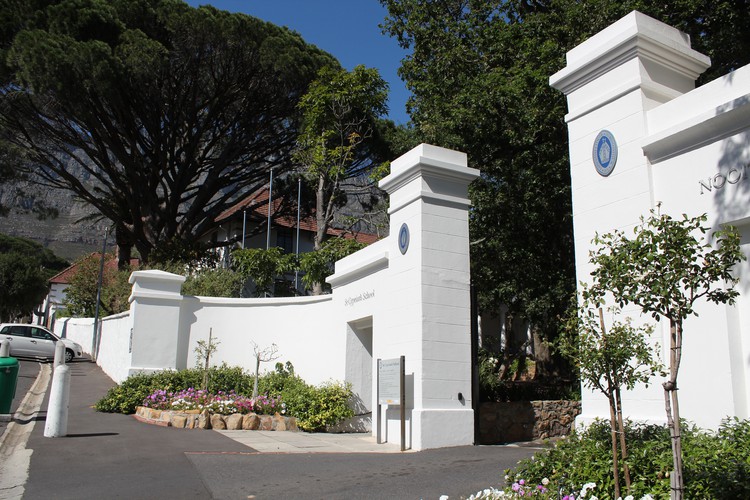Spat over Cape Town school’s swimming pool plan
City approves elite school’s proposal in midst of drought
A group of Oranjezicht residents are up in arms at a decision by the City of Cape Town to approve a plan by St Cyprian’s School for extensive development on its land, including a new swimming pool.
On 5 December the City’s Municipal Planning Tribunal approved the school’s plans at a meeting at the Goodwood Council Chambers.
“How can they plan to build this monstrous pool at a time of such dire need for water?” asked Evelyn Vicatos, an Oranjezicht resident who spoke on behalf of the group. The residents are also concerned about increased traffic and the use of potable water for the construction of the new buildings and the pool.
Vicatos said the residents were worried about the tribunal’s approval. “With regard to the water, I don’t think you can push it aside and say it is not relevant.”
But school principal Sue Redelinghuys told GroundUp the plans had been drawn up “before the water problems became as extreme as they currently are”.
She said the pool was part of several other developments and construction of the pool would depend on water restrictions. Asked about the need to build a bigger pool - St Cyprian’s already has one - Redelinghuys said the new pool would be able to accommodate both swimming and water polo.
She did not say whether or not the school had applied to use potable water during construction.
Jaco van der Westhuizen, Manager of Land Management at the City’s Transport and Urban Development Authority, said there was no policy in place restricting the building of a pool because of water concerns.
“Approving a building plan for a swimming pool is one aspect. The filling of the swimming pool is another,” said Van Der Westhuizen. Cape Town pool-owners are currently not allowed to fill their pools with municipal water.
David Daniels, Chairperson of the Municipal Planning Tribunal, said the school would now need to draw up detailed plans for the proposed alterations and submit those to the City Council for approval. Daniels said that the plans could be opposed at that stage as well.
“There is still quite a long road ahead,” said Redelinghuys. “However, the approval of the development plans was the essential first step”.
Vicatos said current city land use planning did not seem to be taking into account the extent of the water crisis. She cited Green Cape’s 2017 report on water, which states: “If development trends continue, population growth and business expansion will leave a 1-3 billion m3 water deficit [in South Africa] per year by 2030, depending on what new supply systems are developed.”
“I think we do need answers from the Council as to what their policy is, certainly with construction of a new swimming pool,” said Vicatos.
Support independent journalism
Donate using Payfast

Don't miss out on the latest news
We respect your privacy, and promise we won't spam you.
Next: Metrorail’s lies
© 2017 GroundUp. 
This article is licensed under a Creative Commons Attribution-NoDerivatives 4.0 International License.
You may republish this article, so long as you credit the authors and GroundUp, and do not change the text. Please include a link back to the original article.

